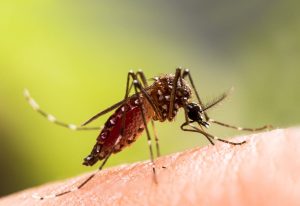IN SEPTEMBER 2015, U.S. Congressman Steve Russell (R-OK) filed requests for information pertaining to two recent Ranger School graduates. Russell’s letter to Army Secretary John M. McHugh frames his wishes to see the documents — which include training evaluation remarks, medical information, and pre-training histories — as a diligent monitoring effort on behalf of the country and its armed forces. From that letter: “In order to ensure that the Army retains its ability to defend the nation, we must ensure that our readiness is not sacrificed.”
You might wonder, why would these graduates lower the U.S. Army’s readiness to defend? After all, the Ranger School at Ft. Benning, GA is one of the most prestigious military training centers in the country. Its alums don’t have a history of desertion or betrayal, and there have been no incidents at the school to call its integrity into question. But fret not. Russell’s concern has a simple explanation: Capt. Kristen Griest and 1st Lt. Shaye Haver are the first women to graduate from Ranger School, and the congressman can’t understand how that is possible.
Lest you think I’m jumping to conclusions by suggesting that Russell’s motives are sexist in nature, allow me to quote the congressman: “This letter serves to request the following information and documents … regarding the female graduates and those female candidates that entered Ranger School beginning 1 May 2015″ [emphasis mine].
You see, Russell isn’t concerned that the Ranger School has lowered its standards for male graduates. He doesn’t doubt that any man who completed the course with Griest and Haver earned the honor. But those women? Well, Russell just doesn’t see how their graduation could have been possible without some sort of conspiracy. In a September 22 People article, Russell claims sources at Ft. Benning informed him that the Ranger School’s two female graduates had received special treatment in the program. Army representatives deny the allegations as patently false.
Griest and Haver were among a group of 19 women and 380 men who entered Ranger School in April 2015. As of this writing, one woman remains in the program, while Griest and Haver are the only female graduates. The other 16 women dropped out of the Ranger School course, and not much is known about any of the men who’ve attempted it.
The U.S. military’s relationship with the women in its ranks is shoddy, to say the least. In WWII, female pilots killed in combat were denied military honors at their funerals because they were officially classed as “civil servants.” Those who survived were not eligible for veteran status until 1977, more than 30 years after the war ended.
Of course, the military is evolving, however slowly. Griest and Haver entered Ranger School the first year it was opened to women, and, as of September 2, it will remain open to female candidates. The question of whether or not female soldiers should be held to the same physical standards has come up and continues to be the subject of debate, but it’s clear that — regardless of whether the requirements are altered in the future — women can pass even the most stringent military examinations.
Evolution or not, women are still barred from occupying combat positions in much of the English-speaking world. Despite being Ranger School graduates, Griest and Haver will not be allowed to join the 75th Ranger Regiment, a special operations unit, because its doors remain closed to female soldiers. According to one source, the Regiment crunched some numbers and arrived at the conclusion that “extremely few women” could meet its standards. So few, in fact, “that it would not make sense to open up… to female candidates for purely pragmatic reasons.”
One is forced to wonder what outcomes those same models would predict for women attempting the Ranger School course.
These attitudes — the “So few, so why bother?” attitudes — are what keep the brass ceiling affixed firmly above women’s heads. The idea that only unicorn women could possibly pass elite examinations leads directly to Russell’s personal sense of justification in requesting military records for only 19 of the Ranger School’s 399 volunteers, and only two of its graduates. It’s likely that the Oklahoma congressman sees nothing wrong or biased with his request, because he has been conditioned to view women in the military as a weakening force. That doesn’t excuse his actions, but it does go some way toward explaining how facepalmingly sexist ideas — such as those contained in Russell’s request — ever make it to print.
As you can imagine, members of the U.S. military have not taken kindly to Russell’s insinuation that the institution has lowered its standards and lied multiple times about the caliber of its graduates. Outraged by the congressman’s request, a group of female West Point graduates have responded by filing Freedom of Information Act paperwork of their own. Their request? To see Congressman Russell’s Ranger School records, of course.


-300x200.jpeg)









-300x241.jpeg)




